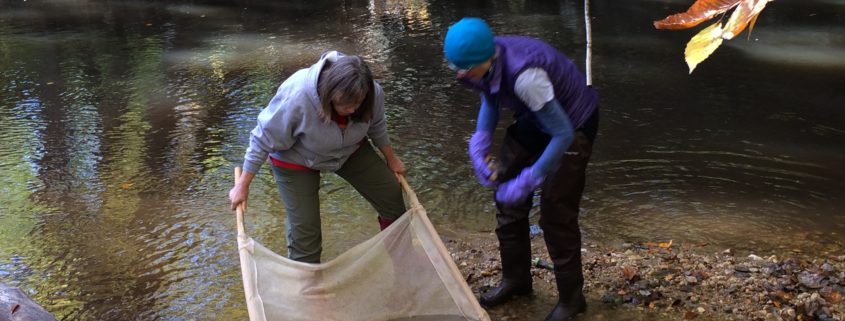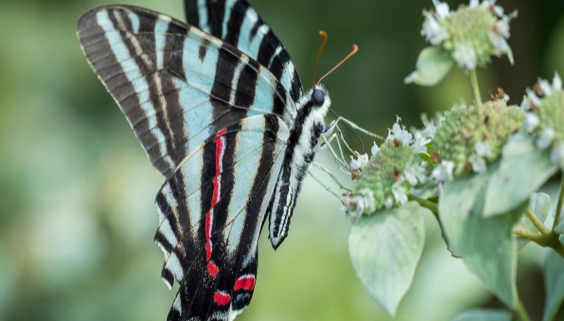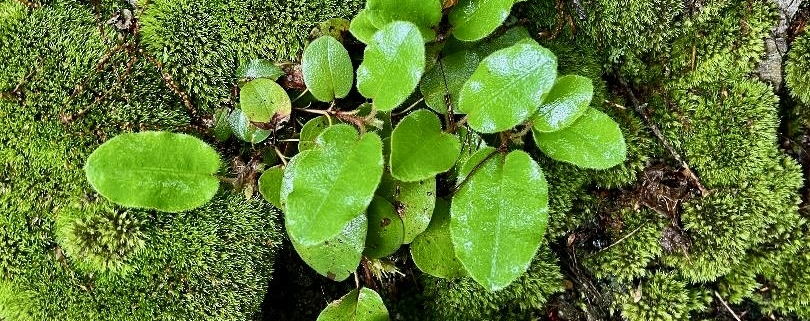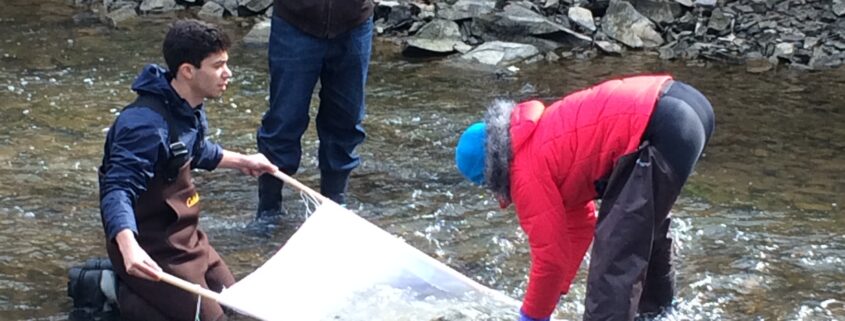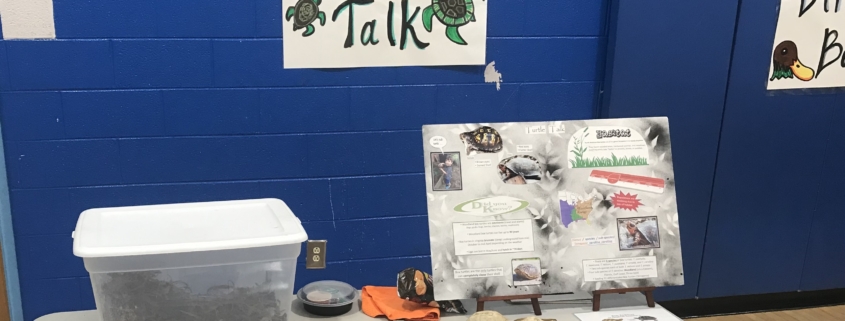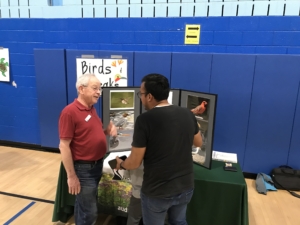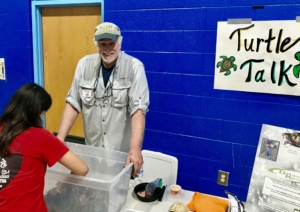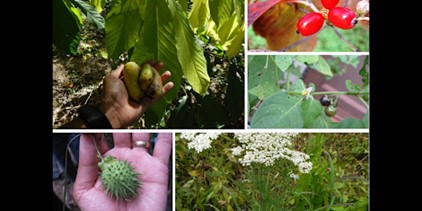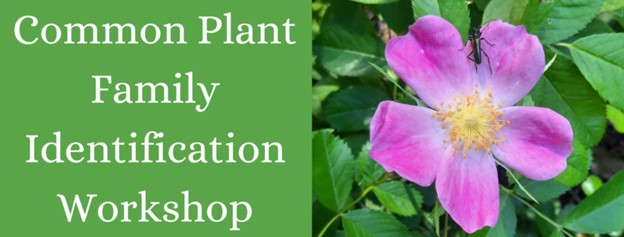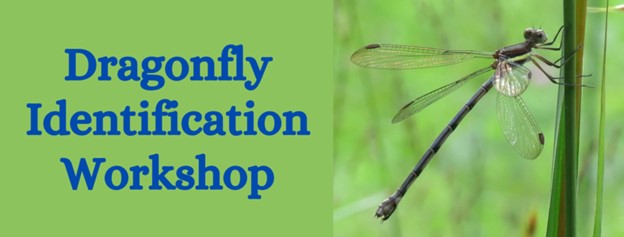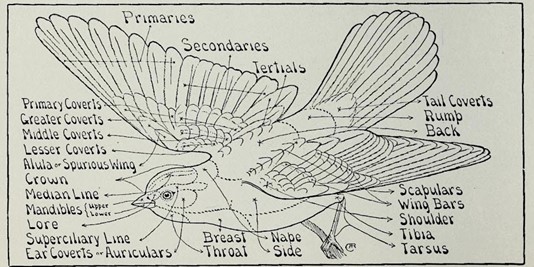A wonderful day was enjoyed by all FMN in attendance on 18 May 2024 with our friends at Virginia Outdoor Foundation (VOF). FMN had 12 people attend the sui generis hike on Saturday at the Bull Run Mountains Natural Area Preserve. Richard Volk commented, “I had not previously been to the Preserve and enjoyed every minute of it (or should I say the 3.5 hours in the mostly light rain). Amber Miller, with Virginia Outdoor Foundation (VOF), was an excellent tour guide, full of information about the history of the area and its First Nation, African American, and white settler inhabitants. We saw and discussed the medicinal and cultural uses of dozens of plants. VOF will be hosting additional guided tours … I look forward to going back for more! “.
FMN Kristin Bauersfeld saw some unique plants, learned new facts, and echoed Richard’s sentiments of the unique opportunity, “it was a great experience”.
FMN Maryam Dadkhah provided all the photos in this article and several more but I could only squeeze a few in due to space constraints.
Here is a sample of things the group discovered during the hike.
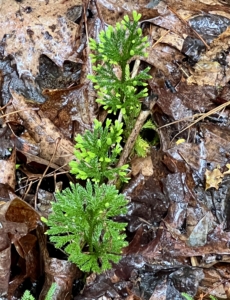
Diphasiastrum digitatum – photo M. Dadkhah
Diphasiastrum digitatum – has many species known under common names of groundcedar, running cedar, or crowsfoot, but the most common name, fan clubmoss, specifically refers to the pictured species. It is the most common species in North America. Club mosses belong to a Class of plants called Lycophytes, which are more closely related to ferns and other vascular plants. Like ferns, club mosses are seedless plants, which means they reproduce by releasing a large number of extremely tiny spores
Did You Know? – Club moss spores and teas from plant leaves have been used since early times in both Native American and European cultures. Medicinal uses included treating urinary tract problems, diarrhea, and other digestive tract problems; relieving headaches and skin ailments; and inducing labor in pregnancy. This species was also once one of the principal clubmoss species used for collection of lycopodium powder, used as a primitive flashpowder.
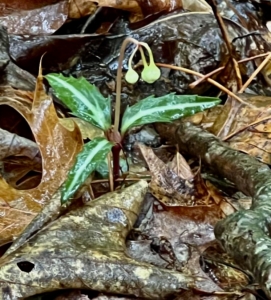
Chimaphila maculata – Photo M. Dadkhah
Chimaphila maculata – spotted or striped wintergreen, striped prince’s pine, spotted pipsissewa, ratsbane, or rheumatism root. It is a small, ever-green herb native to eastern North American and elsewhere.
Did You Know? – The Creek tribe called it ‘pipsisikweu’ – which means ‘breaks into small pieces’ – after the supposed ability to break down gallstones and kidney stones. Native Americans used its leaf tea to treat rheumatism and stomach problems; crushed leaves were applied as a poultice to sores and wounds.
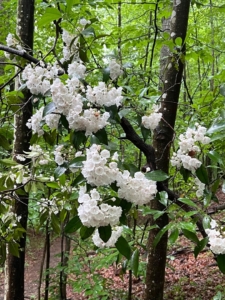
Kalmia latifolia – photo M. Dadkhah
Kalmia latifolia – mountain laurel, calico-bush, or spoonwood, is a species of flowering plant in the heath family (Ericaceae), native to the eastern US. Its range is Maine to Florida, as far west as Missouri.
Did You Know? – Kalmia latifolia is known as spoonwood because Native Americans used it to make their spoons out of it.
The plant was first recorded in America in 1624, but it was named after the Finnish explorer and botanist Pehr Kalm (1716–1779), who sent samples to Linnaeus.
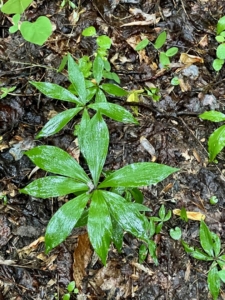
Medeola virginiana – photo M. Dadkhah
Medeola virginiana – known as Indian cucumber, cucumber root, or Indian cucumber-root, is an eastern North American plant species in the lily family. It is the only currently recognized plant species in the genus Medeola. It grows in forest understory in Piedmont regions such as the Appalachian mountains.
Did You Know? – The plant bears edible rhizomes that taste mildly like cucumbers.
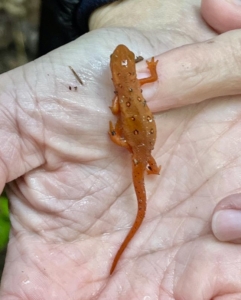
Notophthalmus viridescens – photo M. Dadkhah
The Eastern Newt (Notophthalmus viridescens) – is a common newt of eastern North America. It frequents small lakes, ponds, and streams or nearby wet forests, changing colors and body functions during stages of maturity.
Did You Know? – The eastern newt produces tetrodotoxin which makes the species unpalatable to most predatory fish and birds. It can be mildly toxic to humans when handled extensively. Hopefully no one became ill during the making of this photograph. The newt has a lifespan of 12 to 15 years in the wild, and it may grow to 5 in (13 cm) in length.
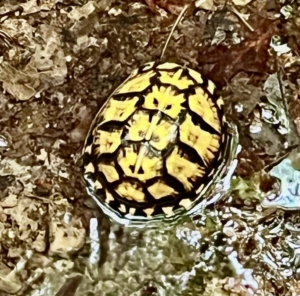
Gorgeous Terrapene carolina carolina – photo M. Dadkhah
The Woodland box turtle (Terrapene carolina carolina) – is a subspecies within a group of hinge-shelled turtles normally called box-turtles. T. c. carolina is native to a wide range of eastern North America. While in the pond turtle family, Emydidae, and not a tortoise, the box turtle is largely terrestrial.
Did You Know? – Box turtle’s lifespan is 30-50 years and is the only turtle that can completely close up in its own shell – hence the name. Males tend to have red eyes and females tend to have brown eyes. The turtle’s carapace was used in Native culture as a bowl or scoop.
Cover photo: Epigaea repens – trailing arbutus, or ground laurel, is a low, spreading plant in the family Ericaceae. It is found from Newfoundland to Florida and west to Kentucky. The plant is a slow-growing, sprawling shrub that prefers moist, shady habitats and acidic (humus-rich) soil. It is often part of the heath complex in an oak-heath forest.
Did You Know? – The Algonquin use an infusion of leaves for kidney disorders. The Cherokee use a decoction of the plant to induce vomiting, treat abdominal pain, and they give an infusion of the plant to children for diarrhea. The Iroquois use a compound for labor pains in parturition, use a compound decoction for rheumatism and indigestion.
Kristin added a few more examples of plants discovered during the hike. “We saw so many things, obviously there isn’t room to list them all: wild comfrey (bronchodilator, anti-inflammatory), spicebush (tea, spice), mustard garlic (introduced to help with soil erosion), jewelweed (use on poison oak/ivy rashes), nettles, elderberry, American jumpseed… the list goes on! Amber also made a point about how non-native plants like multiflora rose that we love to hate has been around long enough that people have found uses for it, such as using the rose hips or flower as an astringent.”
There you have it. If you want to learn more be sure to sign up for the next trip (TBD).

The hikers – Photo M. Dadkhah
Acknowledgements:
Thank you to Richard and Kristin for contributing to this article and to Maryam for providing the wonderful photos.
A big thank you to Amber Miller, a research Fellow for Virginia Outdoors Foundation (VOF) Bull Run Mountain Natural Area Preserve for making the best of a rainy day by leading an entertaining and informative hike. Last but not least, the VOF sweeper Janet, added her own knowledge and kept the group together.


